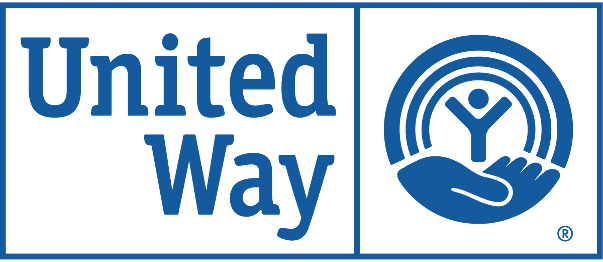March 8, 2018 – Beth Donze
On the outside, it seemed benign: a custodial crew of Ukrainian immigrants earning a good living cleaning office buildings and big-box stores in Philadelphia.
In actuality, these workers had been illegally smuggled into the United States by five Ukrainian brothers with promises of steady pay and dignified housing. Once lured to America, none of these rewards materialized; instead, workers were threatened with deportation or physical harm if they complained to authorities or tried to escape.
“This wasn’t like they were in some slum, cleaning where no one ever saw them. They were (custodial workers) in reputable office buildings,” said Leonard Carollo, an FBI agent who investigates human trafficking and violent crimes against children in the Eastern District of Louisiana.
“These brothers were beating these guys; they were sexually assaulting the victims,” Carollo said. “If they had their kids with them, they put the kids to work and assaulted them (too). They were not getting paid (the promised) $500 a month. They were all living in a one-bedroom apartment. They were not getting fed.”
Could happen to anyone
The busting of this criminal network, which resulted in a life sentence for the ringleader and 25 years in prison for most of the main players, put a human face on the often invisible evil of human trafficking for the 160 people who gathered at St. Maria Goretti March 3 for the symposium “A Light in the Darkness.”
Carollo said Hollywood tends to sensationalize human trafficking by making it seem like it only occurs when attractive women are randomly kidnapped, as depicted in the movie “Taken.”
“Almost all of our victims are just regular boys and girls – and I stress ‘boys’ because most people think a victim of human trafficking can only be a female,” said Carollo, whose child exploitation task force removed a dozen local children from the clutches of human trafficking last year.
Unlike human smuggling and prostitution, in which the person consents to the activity and maintains his or her freedom of movement and financial independence, victims of human trafficking are forced to provide labor, sex and other acts for the commercial gain of another.
One or more of the following factors make it difficult or impossible for victims to break free and find help:
• Force: victims are held against their will and endure physical abuse such as beatings, rape, burnings, denial of medical services and physical restraint.
• Fraud: false promises, such as money, shelter and schooling, are proffered to induce victims to act for the benefit of his or her trafficker.
• Coercion: control of a victim through threats of physical, financial or reputational harm.
The federal statute on human trafficking states that if the victim is 18 or older, prosecutors must also prove there was one or more of these factors to successfully convict a perpetrator. In Louisiana, that burden of proof is not required until the victim is 21, Carollo said.
“Louisiana has one of toughest state laws to address human trafficking in the United States,” he said. “It’s not just kids that we don’t have to prove that force, fraud or coercion for; under Louisiana law, if a victim is under 21, we also don’t have to prove force, fraud or coercion. That’s huge for law enforcement and for prosecutors. That’s one less step that we have to prove in court.”
Websites make it easy
In addition to classic venues where people are recruited and used for human trafficking – so-called massage businesses, strip clubs, brothels and hotels – today’s victims are commonly snared through websites such as backpage.com. Amid ads for valid merchandise, are those selling sex and sexual services.
“It’s unfortunate, but it is as easy as going online and ordering a pizza, because within 15 to 30 minutes you can have a trafficking victim show up at your door,” Carollo said.
Vulnerable ‘digital dossier’
Edward McAndrew, a former federal prosecutor who specialized in trying technology-facilitated crimes for the District of Northern Virginia and Delaware, said the digital trail unwittingly left by human traffickers has been a boon to conviction rates.
“I joined the Department of Justice in 2006, before these little babies came out,” McAndrew said, holding up his smart phone. “Twitter hadn’t been born yet; Facebook was in its infancy; social networking hadn’t really exploded.”
People can victimize themselves simply by posting an innocent selfie. Each of us has a “digital dossier” that can be weaponized, McAndrew said.
“(Smart phones) have turned every one of us into movie producers, publishers, speakers on any topic that we choose, and we can communicate not just with the people in this room, but with the entire globe in tenths of a second,” he said.
Perps’ bravado their downfall
Fortunately, for both law enforcement and prosecutors, human traffickers have a false sense of their anonymity. Information culled from cell phones and computers can track everywhere we go – both geographically and in cyberspace.
“The United States government is no longer big brother. Google, Facebook, Apple – they’re big brother,” McAndrew said. “Facebook has been a godsend; Instagram has been an absolute godsend,” he added, noting that perpetrators often will pose online with their guns, drugs and even their victims. In FBI and prosecutorial circles, Google, with its treasure trove of search data, is referred to as “Special Agent Google,” McAndrew noted.
Human trafficking laws are being toughened in some other helpful ways: Under federal law, perpetrators cannot use their ignorance of a victim’s minority status as a defense; and physical force is no longer required to prove that someone was enslaved for labor or sex.
“Psychological coercion is sufficient,” McAndrew notes, adding that even if a victim initially consented to an illegal or illicit activity, it doesn’t preclude that person from being a victim of trafficking.
Another sign of hope is the February passage in the House of Representatives of HR 1865, which removes legal immunity for websites that knowingly promote prostitution and sex trafficking. Currently, websites such as backpage.com are not civilly or criminally liable for content provided by other parties, McAndrew said, encouraging audience members to contact their senators to voice their support for the act’s passage in the Senate.
Sites cater to criminals
Meanwhile, pedophiles and sex traffickers have online communities of like-minded individuals who share images and who reinforce their criminal behavior. They can also readily join social networking organizations such as the North American Man-Boy Love Association.
McAndrew said the youngest victims of child exploitation “literally still have the clip from the umbilical cord” on them in images shopped around by traffickers.
“We’ve found these manuals on computers where they actually have step-by-step guides on how identify and victimize children, including how to get them away from their parents. It’s really disturbing, and it’s really organized,” McAndrew said.
“The conduct always starts online – chats. For those of you who have children, I hope that you have rights to your child’s devices. Make sure you are checking them.”
The symposium was co-sponsored by Catholic Charities and the archdiocesan offices of Respect Life and Justice and Peace.
The archdiocese has a Human Trafficking Committee that can help schedule age-appropriate presentations and training for general audiences, adults and high school age youth. For more information on the committee, email Debbie Shinskie at [email protected] or at 286-1119.
If you suspect human trafficking, call the national hotline at 888-3737-888 or text HELP to 233733 (BEFREE).






